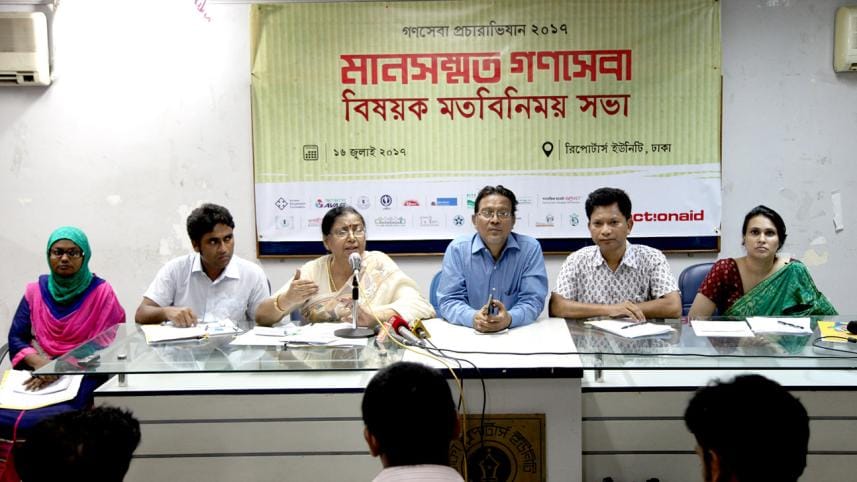Public places mostly unsafe for women

Cities hardly have any public place where women do feel safe, be it hospital, public transport or police station, according to a research by ActionAid Bangladesh.
The organisation has come up with the observation based on a survey of 400 people (50 percent male and 50 percent female) conducted in Khulna, Rajshahi, Chittagong and Narayanganj city corporations in the first quarter of 2016.
Their experience while seeking services from police, city corporations, transport authorities, market authorities and hospitals was compiled in preparing a report on “violence against women in public places”.
“Important public service sectors in Bangladesh are not people oriented due to lack of investment, implementation of policies, transparency and accountability. For these reasons, people, especially women, face numerous problems and harassment while seeking urgent services like health, education and transport,” the international non-government organisation said in a press release.
At least 42.5 percent women service seekers face rude behaviour at hospitals by service providers while 50 percent women face inappropriate touch at market places, according to the research titled “Public services on the context of violence against women in public places.”
Seventy percent of the female participants during the survey said buses and bus stands were not safe for them.
Women face harassment even at police stations as, 30 percent women said they had experienced eve-teasing at police stations while 35 percent said they had suffered physical torture in incidents involving law enforcers.
Most of these public service providers do not have any mechanism to prevent violence against women. In most of the cases proper steps are not taken even after such complaints, the NGO said.
City corporations lack basic facilities such as separate toilets for women, breastfeeding corners and even separate sitting arrangements for women, making it difficult for them to travel with young children for vaccination.
Similarly, markets and hospitals have no means to address violence against women and the worst sufferers of this situation belong to the poorest sections of the community, the NGO said.

At bus stations, women are harassed by service providers and general public, according to the survey's findings. Common forms of harassment include eve-teasing, rude behaviour and inappropriate touch.
Presenting the research results and a concept paper at a press briefing at Dhaka Reporters' Unity yesterday, Nuzhat Jabin, manager of ActionAid Bangladesh, said people who sought treatment and security faced harassment.
Women face more problems. “This happens due to lack of budgetary allocation and transparency and accountability in public interest sectors.”
Pratima Paul Majumder, senior researcher at the Bangladesh Institute of Development Studies, said several laws and government policies were there to ensure good services, but those were not implemented properly.
“Besides, service providers are not cordial. They lack proper concept of gender issue. So, women are facing more problems.”
Ajgar Ali Sabri, director of ActionAid Bangladesh, said more people would join the workforce if quality education and healthcare were ensured and so public services had to be improved.
ActionAid recommends spending more by the government on public services, preparing and implementing gender sensitive budgets and making the public service system accountable to improve the situation.



 For all latest news, follow The Daily Star's Google News channel.
For all latest news, follow The Daily Star's Google News channel.
Comments